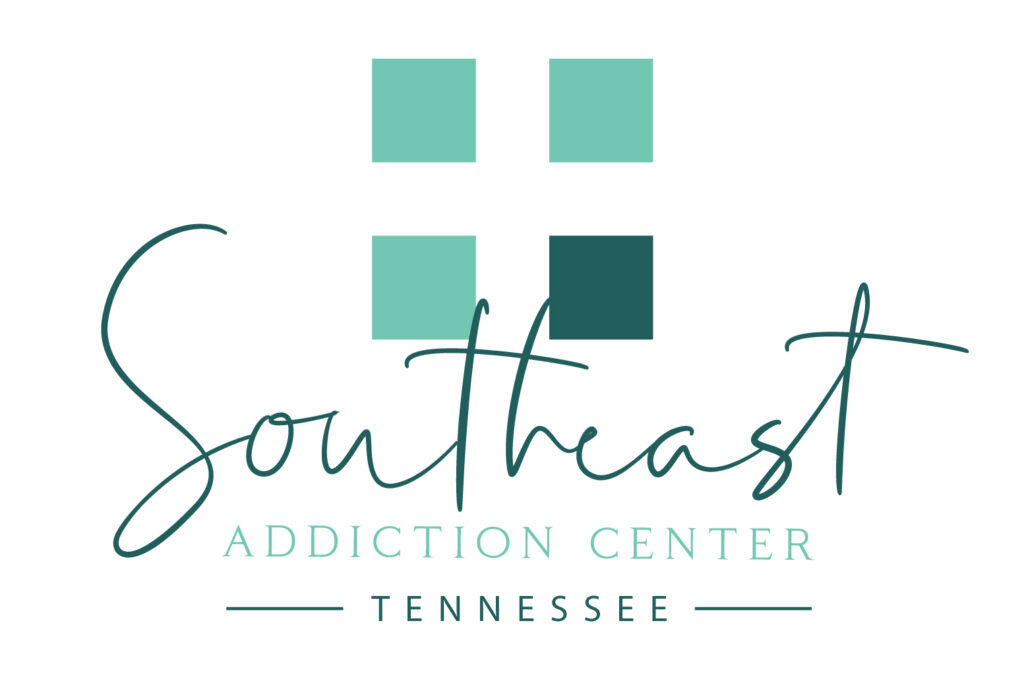Substances
Table of Contents

Detox from Alcohol with Long-Term Relief!
Navigating the path to sobriety involves crucial steps such as alcohol withdrawal and detox. It is essential to grasp the significance of these processes and how they impact individuals grappling with alcohol addiction.
Defining Alcohol Withdrawal and Detox
Alcohol withdrawal encompasses the physical and psychological symptoms that manifest when an individual suddenly halts or significantly reduces their alcohol intake after prolonged heavy drinking. These symptoms can vary from mild discomfort to severe complications, depending on the extent of the addiction.
Detoxification, commonly referred to as detox, is the body’s mechanism for purging toxins, including alcohol, from its system. In the realm of alcohol addiction, detox entails managing withdrawal symptoms while facilitating a safe transition into sobriety.
The Science Behind Alcohol Withdrawal and Detox
When an individual develops a dependence on alcohol, their body adjusts to its presence. This means that when they suddenly stop drinking or significantly reduce their intake, their body undergoes a period of adjustment known as withdrawal.
During this process, various physiological changes take place within the body. One critical aspect is the impact on neurotransmitters in the brain. Alcohol influences these chemical messengers like gamma-aminobutyric acid (GABA) and glutamate, which play a role in regulating mood and anxiety levels.
With prolonged heavy alcohol consumption, the brain compensates by producing more GABA to counteract its depressive effects. However, when alcohol is abruptly removed from the system during detoxification, there is an imbalance between GABA and glutamate levels. This imbalance can lead to symptoms such as irritability, restlessness, anxiety, and even seizures.
Another essential element of alcohol withdrawal is how it impacts the central nervous system (CNS). Chronic heavy drinking suppresses CNS activity due to increased GABA production. Abrupt cessation or drastic reduction in intake without medical supervision or support from professionals at a reputable facility can result in CNS hyperactivity.
This hyperactivity presents through symptoms like tremors (shakes), insomnia (difficulty sleeping), increased heart rate, and blood pressure – all indicators that your body is grappling with withdrawal from excessive drinking habits!
Comprehending these scientific aspects underscores why professional detox programs are vital for individuals looking to overcome alcohol addiction. The expertise and medical assistance provided by professionals can help manage potentially dangerous symptoms associated with withdrawal, ensuring a safer and more effective detox process.
The Importance of Professional Detox

When it comes to alcohol withdrawal and detox, seeking professional help is crucial. While some may attempt self-detox at home, the risks involved make professional detox a safer and more effective option.
- Prioritize Safety: Alcohol withdrawal involves both physical and psychological symptoms that can lead to severe complications without proper medical supervision. Delirium tremens (DTs), seizures, or even death are potential risks that trained medical staff in professional detox facilities are equipped to manage.
- Access to Medical Expertise: Professional detox programs provide access to healthcare professionals specializing in addiction medicine who can tailor treatment plans based on individual needs and address any underlying health issues complicating the process.
- Medication-Assisted Treatment: In certain cases, medication-assisted treatment (MAT) may be necessary during alcohol detoxification to alleviate symptoms and reduce cravings safely under qualified medical supervision.
- Emotional Support: Alcohol withdrawal impacts mental well-being as much as physical health. Professional detox facilities offer emotional support through counseling services led by licensed therapists specializing in addiction recovery.
- Avoiding Relapse: One of the biggest challenges post-detox is avoiding relapse. The structured environment of professional programs minimizes triggers while providing essential coping strategies for long-term sobriety.
- Aftercare Planning: Completing a professional program sets the foundation for ongoing recovery with personalized aftercare planning including referrals to outpatient counseling or community resources for continued support post-detox.
In conclusion, professional detox offers the safest path through alcohol withdrawal with access to medical expertise, medication-assisted treatment options, emotional support services, and comprehensive aftercare planning – all vital components for successful recovery from alcohol addiction. Seeking help from specialists in addiction medicine is key to reclaiming your life from alcoholism’s grasp.
Choosing the Right Detox Facility
When it comes to alcohol detox, finding the right facility is key for a successful and safe recovery journey. Here are some crucial factors to keep in mind when making this important decision:
- Accreditation and Licensing: It’s vital to choose a detox center that is accredited by reputable organizations and holds all necessary licenses. This ensures that they maintain high standards of care and follow strict guidelines.
- Expert Medical Staff: Seek out a detox facility with skilled medical professionals who specialize in addiction medicine. These experts can offer comprehensive care throughout your detoxification process.
- Treatment Approach: Different facilities may have varying treatment approaches, so it’s essential to find one that aligns with your preferences and needs. Some centers may focus on holistic therapies, while others may provide more traditional medical interventions.
- Continuum of Care: A quality detox facility should not only assist you through the initial withdrawal phase but also offer support as you transition into long-term recovery. Look for programs that include aftercare services or can connect you with appropriate resources.
- Amenities and Environment: While not mandatory, amenities such as comfortable accommodations, recreational activities, or peaceful surroundings can enhance your overall experience during detox.
- Insurance Coverage: Check if the detox center accepts your insurance plan or provides financial assistance options. Understanding what costs are covered beforehand is crucial before committing to a specific program.
- Reviews and Testimonials: Research online reviews and testimonials from past clients or their loved ones about their experiences at different facilities. This insight can give valuable information about the quality of care provided.

8 Questions You Should Ask Potential Facilities:
- What approach do you take towards alcohol detox?
- How long does the program typically last?
- Are licensed medical professionals available around-the-clock?
- What types of therapy or counseling services do you offer?
- Can I receive medication-assisted treatment if needed?
- What is the staff-to-patient ratio like?
- Do you provide aftercare services or referrals?
- How do you handle emergencies or complications during detox?
Remember, selecting the right detox center plays a significant role in your recovery journey. Take time to thoroughly research, ask questions, and ensure that you find a facility tailored to meet your specific needs, providing necessary support for a successful cleansing process.
Preparing for Alcohol Detox
Preparing for the detoxification process is a crucial step towards a safe and effective journey towards recovery. Here are some essential tips to consider when getting ready for alcohol detox:
- Detoxification can feel like a daunting climb, but with the right tools, you can reach the summit of sobriety. Here’s your survival kit:
- Doc Talk: Before diving in, chat with a healthcare professional. They’ll assess your health, identify any potential roadblocks, and steer you towards the smoothest detox path.
- Your Support Squad: Gather your closest allies – friends, family, or groups. Let them know about your detox journey and enlist their understanding and encouragement.
- Eviction Notice: Kick out all traces of alcohol! Ditch any remaining drinks, toss empty bottles, and avoid situations where alcohol might be lurking.
- Hydration Hero: Water is your detox buddy. Aim for eight glasses daily to flush out toxins.
- Fuel Up: Nourish your body with a balanced diet packed with vitamins and minerals. Think fruits, veggies, lean proteins, whole grains, and healthy fats.
- Rest and Recharge: Your body is working hard. Prioritize sleep with a regular bedtime routine that promotes relaxation.
- Move It or Lose It: Exercise isn’t just about distraction. It releases endorphins, boosting your mood and lowering stress.
- Chill Out Zone: Master stress-busting techniques like deep breathing, meditation, or yoga. They’ll calm your mind, ease anxiety, and improve your overall wellbeing.
- Knowledge is Power: Learn about the detox process, including potential physical and emotional bumps in the road. Knowing these are temporary can keep you motivated.
- Positivity Project: Stay positive! Remind yourself why you’re quitting, visualize a healthier future, and celebrate each milestone you conquer.
By following these guidelines diligently, you will be better equipped mentally and physically for an effective alcohol detox experience. Remember, professional guidance is crucial for ensuring safety and success throughout this process.
Post-Detox: Maintaining Sobriety
Preparing for alcohol detox is a crucial step in ensuring a successful and safe recovery journey. By taking the necessary steps before beginning detox, you can set yourself up for success and minimize any potential risks or complications. Here are some important tips to consider when getting ready for alcohol detox:
- Taking Charge of Your Recovery: Alcohol Detox Preparation Detoxification is a critical step on the road to sobriety, but success hinges on being prepared. Here are some pointers to guide you:
- Doc Knows Best: Start with a healthcare professional specializing in addiction. They’ll assess your needs and craft a personalized detox plan, maximizing your chances of a smooth journey.
- Your Recovery Team: Gather your support squad – friends, family, or groups – who understand addiction and will be your cheerleaders during challenging moments.
- Setting the Stage for Success: Detox can be tough. Be honest with yourself about potential hurdles and set realistic goals for your journey.
- Out with the Old, In with the New: Detox is a prime time to revamp your lifestyle. Consider healthy eating, regular exercise, and stress-busting techniques like meditation or yoga. Identify and eliminate triggers that might tempt you back to drinking.
- Knowledge is Power: Learn about common withdrawal symptoms. Knowing what to expect can help you manage them effectively.
- Healthy Coping Mechanisms: Develop healthy ways to cope with stress or negativity. Rediscover hobbies, seek therapy, or join support groups to connect with others facing similar challenges.
- Detox D-Day: Expect some side effects – nausea, headaches, sleep issues, anxiety, and mood swings are common. Being prepared can help you navigate these challenges.
- Beyond Detox: Detox is just the beginning. Plan for ongoing support after detox. This could involve treatment programs, therapy, or recovery communities like Alcoholics Anonymous (AA).
By following these steps and adequately preparing yourself before starting alcohol detox, you are setting yourself up for success on your path towards sobriety. Remember that seeking professional guidance and having a strong support system are key elements of a successful recovery journey.